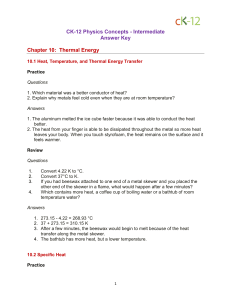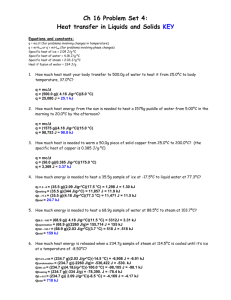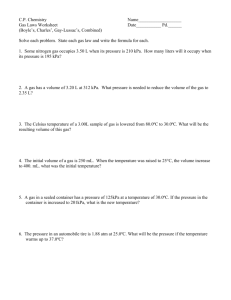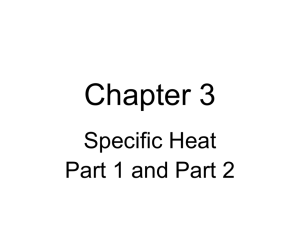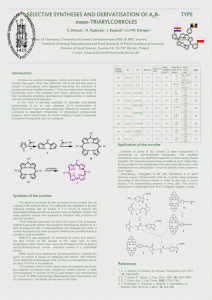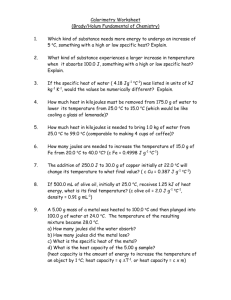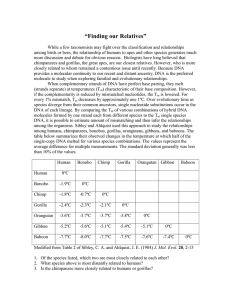Specific heat capacity ppt
advertisement
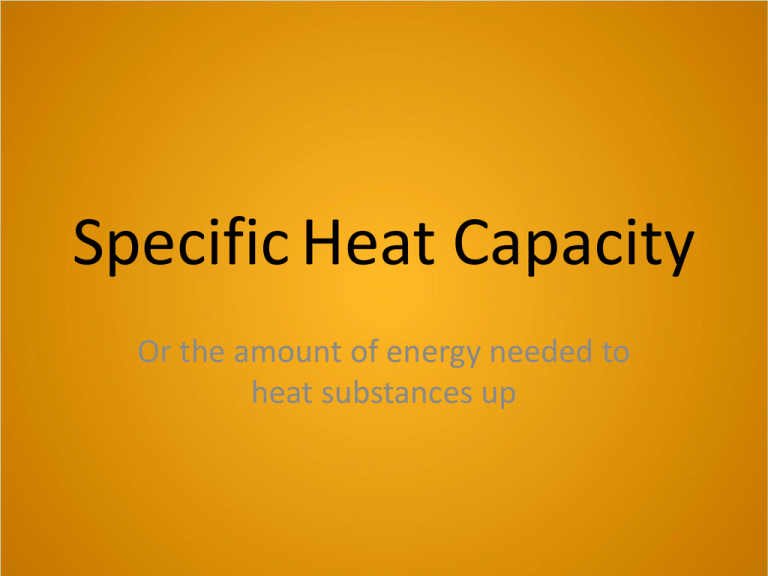
Specific Heat Capacity Or the amount of energy needed to heat substances up • Specific Heat Capacity can be thought of as a measure of how much heat energy is needed to warm the substance up. • You will possibly have noticed that it is easier to warm up a saucepan full of oil than it is to warm up one full of water. http://www.cookwaremanufacturer.com/photo/418fa6490f24202f2cc5b5feee0fdde3/Aluminum-Saucepan.jpg • Specific Heat Capacity (C) of a substance is the amount of heat required to raise the temperature of 1g of the substance by 1oC (or by 1 K). • The units of specific heat capacity are J oC-1 g-1 or J K-1 g-1. Sometimes the mass is expressed in kg so the units could also be J oC-1 g-1 or J K-1 kg-1 • The next table shows how much energy it takes to heat up some different substances. • The small values show that not a lot of energy is needed to produce a temperature change, whereas the large values indicate a lot more energy is needed. • Approximate values in J / kg °K of the Specific Heat Capacities of some substances are: Air Aluminium Asbestos Brass Brick Concrete Cork Glass Gold Ice Iron 1000 900 840 400 750 3300 2000 600 130 2100 500 Lead Mercury Nylon Paraffin Platinum Polythene Polystyrene Rubber Silver Steel Water 125 14 1700 2100 135 2200 1300 1600 235 450 4200 The equation: The amount of heat energy (q) gained or lost by a substance = mass of substance (m) X specific heat capacity (C) X change in temperature (ΔT) q = m x C x ΔT An example of a calculation using the specific heat capacity equation: How much energy would be needed to heat 450 grams of copper metal from a temperature of 25.0ºC to a temperature of 75.0ºC? (The specific heat of copper at 25.0ºC is 0.385 J/g ºC.) Explanation: The change in temperature (ΔT) is: 75ºC - 25ºC = 50ºC Given mass, two temperatures, and a specific heat capacity, you have enough values to plug into the specific heat equation q = m x C x ΔT . and plugging in your values you get q = (450 g) x (0.385 J/g ºC) x (50.0ºC) = 8700 J Some good websites • http://www.s-cool.co.uk/gcse/physics/energytransfers/types-of-energytransfers.html#types-of-energy

